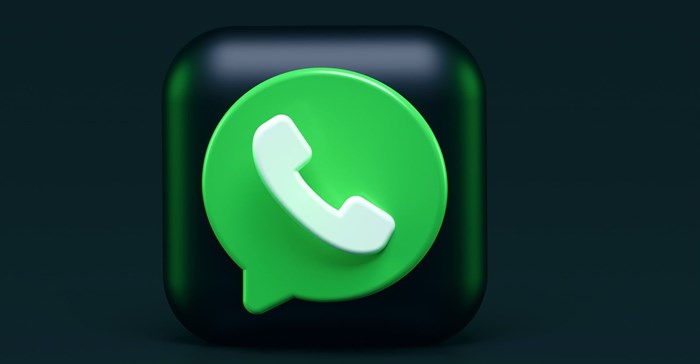South African companies are slow to harness WhatsApp's marketing power, despite over 50 million global business users.
Those brands who haven’t added South Africa’s favourite chat channel are missing out, as WhatsApp is more than fifteen times more effective than SMS and email, delivering a trusted two-way communication channel between brands and their customers.
In September 2022, WhatsApp relaxed its content policy, allowing businesses with accounts to use the WhatsApp Business API to share promotional messages to customers who have opted in. These non-transactional messages allow brands to quickly and cost effectively reach their customers with promotional offers, discount vouchers and coupons, news of product launches, as well as news of products back in stock, cart-recovery and other useful messages.
“Our engagement has shown that many CMOs remain unaware of the new opportunities to use the channel to promote and market their brand’s service or product to consumers using WhatsApp,” explains Werner Lindemann, Clickatell’s senior vice president, Growth Markets.
“WhatsApp’s own engagement showed that consumers enjoyed getting useful messages from their favourite brands if they were fully in control of their opt-in and opt-out status. This encouraged the company to open up what could be shared on the channel. The result is engaged customers who love the convenience of chat, as well as brands who are driving business value with a channel that accommodates the full commerce experience, including purchases.”
Lindemann says the response rate for WhatsApp is one of the highest available to digital marketers.
“The typical response rate for SMS and email marketing is between two and six percent. We’ve seen WhatsApp responses range from 30% to 70%. So even if you only focus on the most conservative figures, WhatsApp is delivering a 15 times better yield than you would get on SMS and email efforts,” he shares.
“One of our latest campaigns with a food retailer was a staggering 93% read rate and only 6% of consumers opted out. I’ve never seen anything like this in market reach before.”
WhatsApp boosts sales, but also cuts operating costs
Large retailers in South Africa still rely on newspaper inserts and pamphlets as a way to communicate their specials with spend on print advertising projected to reach US $489m in 2023.
“Many large retailers already have successful loyalty programmes with many millions of members. For just a fraction of the cost of what they are spending on producing and distributing one of their pamphlets every week, retailers could ask members if they wanted to opt into receiving digital pamphlets via WhatsApp. This is an explicit opt-in and customers look forward to receiving their weekly specials. We can also systematically test templates to see what gets the most response finessing parameters for the best results. As one of the most experienced Meta business service providers in Africa, we have distilled our knowledge so results are fast, and retailers can stay on top of what customers want,” Lindemann explains.
Lindemann says the power of the WhatsApp channel lies in how it fits into the customer journey with use cases driving awareness all the way through to after sales care. This gives retailers any number of opportunities to optimise their marketing efforts.
“One of our customers has managed to slash 50 000 inbound calls per month in their call center by implementing call centre deflection through a diversion to a self-help WhatsApp channel. This shows how effective the channel is, but also how happy customers are to use WhatsApp to resolve queries such as blocking or replacing loyalty cards. Of course, they can still escalate to a live agent should they need to. Today’s consumers prefer digital communication and self-service because this is how we are used to communicating with our friends and family – brand communication should be no different,” he says.
Tight control to minimise abuse and maintain trust
While the requirements have been relaxed, Lindemann says WhatsApp still has strict quality parameters, and should brands not adhere to them your templates and channel use gets throttled.
“WhatsApp will closely monitor to see if customers are blocking your number, and they will investigate the quality of your templates and how you are using the channel. It makes no sense for users to ignore messages the same way they do on SMS; it's in everyone’s interest to keep the channel as spam-free as possible. This is a good reason to partner with a business service provider who understands retail and the channel and can make sure your brand is getting it right from the start. The more your customers trust you, the more they are likely to keep engaging and that translates into loyalty and sales,” Lindemann says.












































